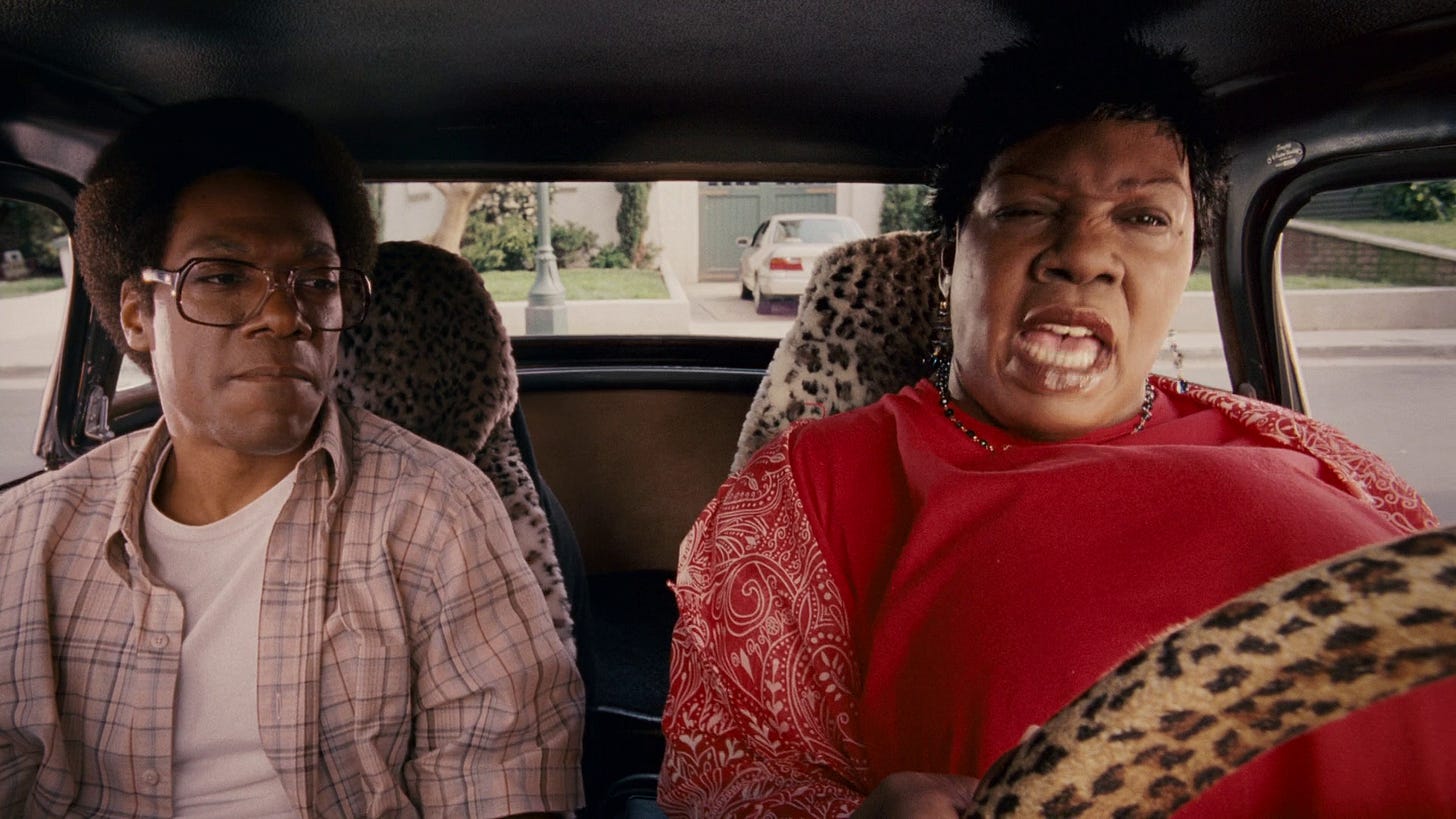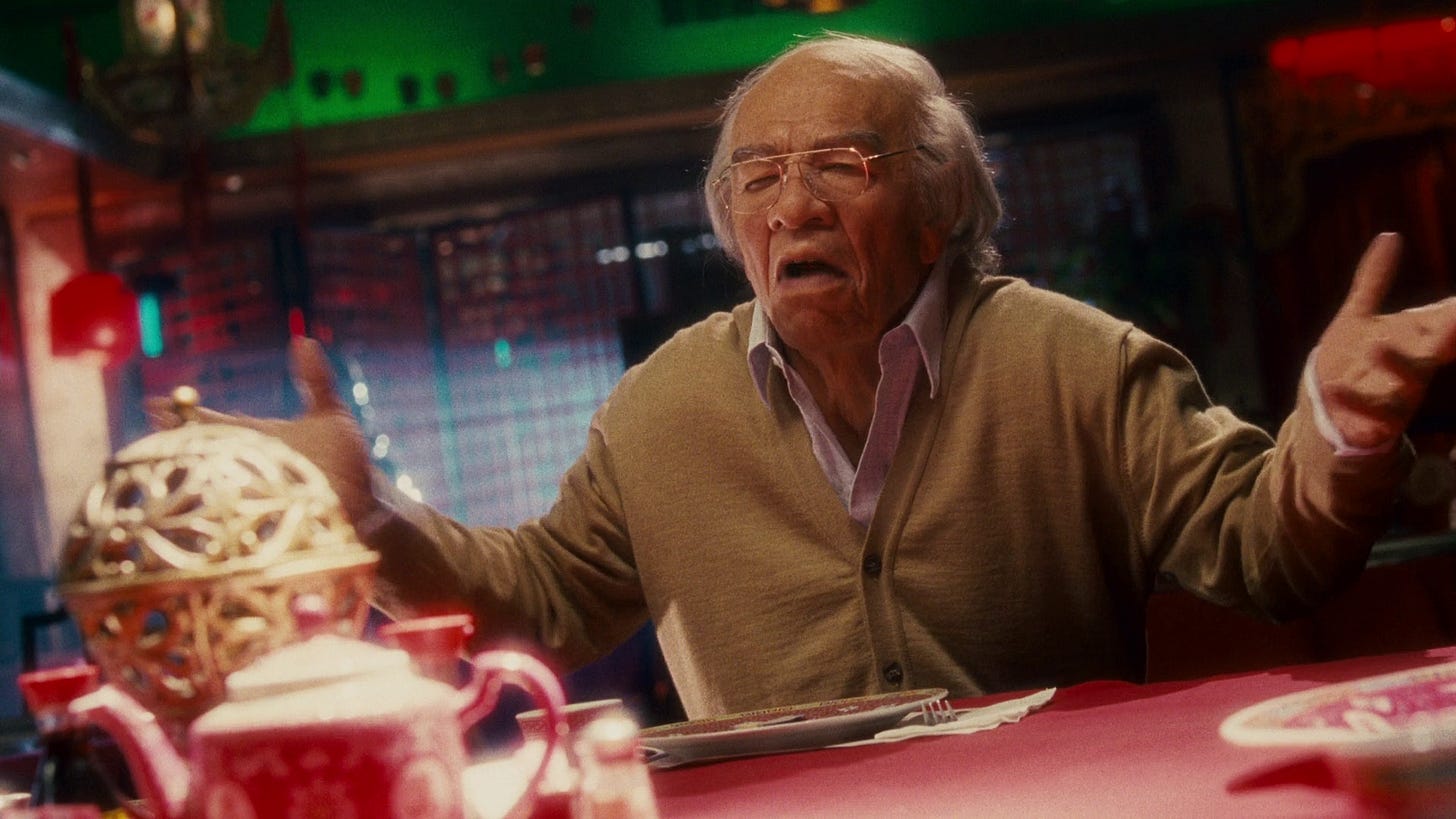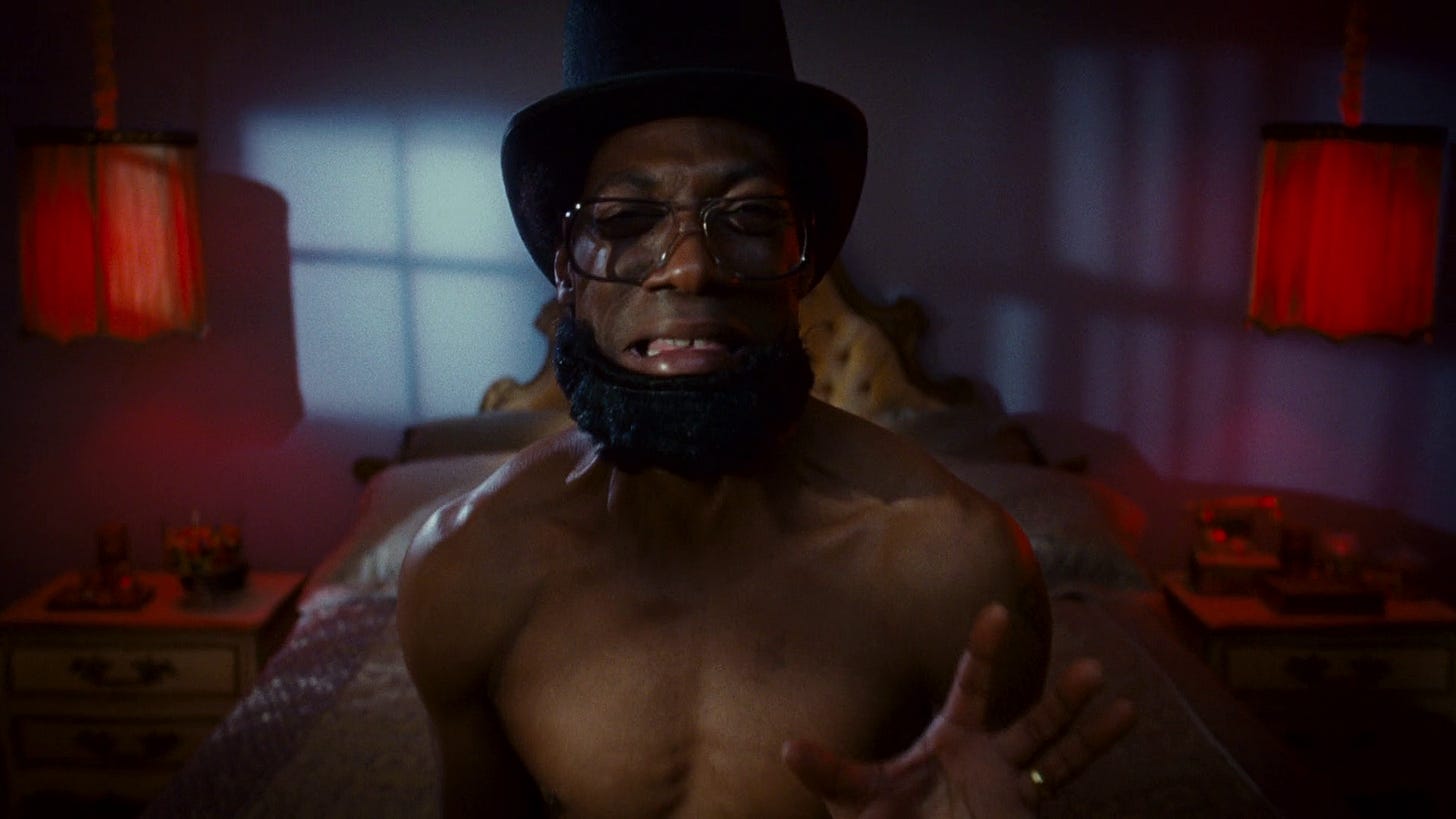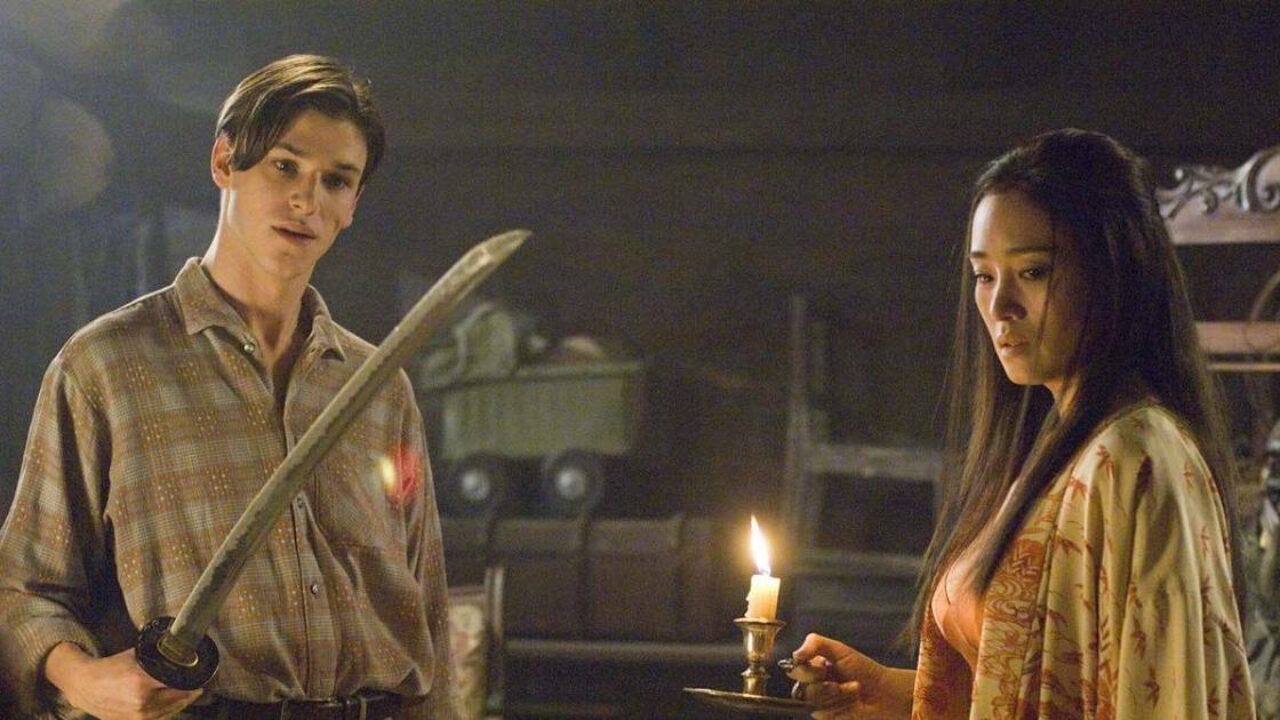Norbit
Feb 9 2007: The Final Year of Cinema Week 6
It’s rather edifying when art is exactly as history remembers it to be. Works are constantly being re-appraised and put into new contexts. People like Emily Dickinson, Vincent Van Gogh, and Herman Melville had their works underappreciated when they were created only to be re-appraised as masterpieces decades later. Harriet Beecher Stowe’s Uncle Tom’s Cabin was considered a modern masterpiece upon its release, and today calling someone an “uncle Tom” is an insult. King Lear was for some time considered so dreary that it was rewritten with a happy ending to save its reputation among Shakespeare’s plays, and today the fact that this was ever done is considered an outrage. Pretend as we might that the hot take re-appraisal of the past is a new phenomenon caused by the internet’s never ending appetite for clicks, it’s been going on as long as art has passed from one generation to the next. This entire project is a part of it, and this week I was prepared to potentially deliver just such a hot take. I have no such take however. People in 2007 said that Norbit sucked ass and I am here to tell you that it still sucks ass.
Norbit is the story of Norbit Rice (Eddie Murphy), an orphan raised at a combination orphanage and Chinese restaurant run by the stern Mr. Wong (also Murphy). At school he meets a girl named Rasputia (also Murphy) who he first befriends and then upon reaching adulthood weds. The timid Norbit is first protected by Rasputia but then she starts to viciously bully him. Eventually Norbit reconnects with his childhood bestie Kate (Thandiwe Newton) with whom there’s an immediately noticeable mutual attraction, but unfortunately she’s betrothed to Deion (Cuba Gooding Jr) who seems charming but in reality is scheming to buy Mr. Wong’s restaurant and turn it into a strip club with the help of Rasputia’s criminal-minded brothers. Though nebbish and conflict averse, Norbit manages to throw off Rasputia’s oppressive yoke, stop Kate’s marriage, and save the orphanage with the power of self-determination and friendship.
Not gonna bury the lede here: Norbit is supposed to be a comedy and I laughed exactly two times: once during a montage where Norbit and Rasputia have several varieties of holiday-themed sex including a round of President’s Day sex where Norbit is dressed as Abraham Lincoln, and once when Eddie Griffin’s pimp-coded character “Pope Sweet Jesus” announces confidently and nonchalantly “I’ve ruined plenty of weddings” when asked to delay Kate’s nuptials. Past that there were dozens of moments that were clearly intended as jokes but didn’t remotely elicit a laugh. 95% of the time the “joke” is simply “fat women exist”.
Rasputia is a repugnant character in spirit. She is quick to anger, blames everyone but herself when things go wrong, and expects Norbit to not mind that she’s fucking her power-tap teacher1 but also hates Norbit for even daring to socialize with Kate. She is also tall and fat2, and it feels pretty obviously like Murphy is is saying “this, too, is a failing of Rasputia’s character.” She drives a classic MGB roadster and —lol— she has difficulty fitting in it! She pounces on the bed and —lol— she breaks it! She goes to the water park and —double lol!— she can’t fit through the turnstile and is interrogated by staff if her two-piece bathing suit has a bottom! It’s a joke because she has a belly that hangs! It’s hilarious! Isn’t it funny that fat people exist?
What’s most infuriating about Norbit is that it’s clear why Murphy made every decision he made, it just sucks that he made them. The Nutty Professor (1996) was a massive hit, and demonstrated that when Eddie Murphy wears a fat suit and plays multiple characters that audiences love it. It was also a remake of a Jerry Lewis hit, and it’s not hard to see that Lewis was a huge influence on Murphy’s career. It follows then that he might want to play a role where he plays a more classic Lewis nerd stereotype like one found in The Bellboy (1960) or Cinderfella (1960), and Norbit Rice is exactly that, right down to the voice. The thing is that Nutty Professor — while not perfect — still isn’t nearly as cringe owing to the fact that Professor Sherman Klump broadly reads as sympathetic and a fully three dimensional character. Rasputia meanwhile is simply every failing a human being is capable of having, and on top of that is fat, and dark, and a woman. Professor Klump is a human being with many attributes, of which fatness is one, and depending on how you look at him, a potentially neutral one. Rasputia is a catalog of human wickedness, and it’s tough to say that her fatness, dark complexion, and gender aren’t meant to be a part of that catalog.
Norbit’s greatest legacy is as the moment when Eddie Murphy’s silver age ended. Murphy’s golden age runs from his film debut in 48 Hours (1982) until his first real flop Vampire In Brooklyn (1995). While not every movie in this run is a massive turbo hit, the massive turbo hits vastly outnumber the merely moderate hits. Eddie Murphy in the 80s – early 90s was a money printing machine. While Vampire In Brooklyn did eventually make back its $14 million budget ultimately grossing $19 million, it was the first Murphy vehicle to grossly underperform to the point of being considered a flop. While the massive hit The Nutty Professor followed the next year, it marked the beginning of a decade where Murphy was a solid, if not gangbuster, box office draw. This decade definitely had several Nutty Professor sequels and other hits like Bowfinger (1999) and Daddy Day Care (2003) but also had a higher flop-to-hit ratio with films like I Spy (2002) and The Adventures of Pluto Nash (2002) interspersed in between. While Norbit isn’t Murphy’s last film, or even his final film as a lead, it is his final film where was the star, a producer, and writer. While he has only directed one film (probably the biggest underperformer of his golden age, 1989’s Harlem Nights), he has been unquestionably a primary creative force behind many of his films including megahits like Coming To America (1988) and Beverly Hills Cop II (1987). Unfortunately as time went by and the more he put out projects like Vampire in Brooklyn and Life (1999) it became more apparent that when Murphy was driving the car rather than just sitting in it he was more of a liability than an asset. He’s done good work since, but broadly as a part of a collaborative process, not at its center. After all, no one wants another Norbit.
Rating: ★☆☆☆☆ *giant fart noise*
Economics: Here’s where we can demonstrate that Hollywood objectively doesn’t play Moneyball. Norbit was a giant hit. It opened on Feb 9 2007 at #1 at the box office ahead of Hannibal Rising. It eventually made $159 million at the global box office plus $45 million in DVD sales on a $60 million budget. Doesn’t matter. It’s still Norbit.
Harold Number: 0.21
Funniest cultural legacy: On May 10, 2007, Brian Wilson of The Beach Boys was interviewed by the Asbury Park Press. Brian Wilson is broadly considered to be the reason The Beach Boys were the cultural force that they were through the 60s, crafting intricate arrangements of simple three-chord pop songs that turned them into miniature symphonies. He is also a notorious recluse who has documented struggles with bipolar disorder and schizoaffective disorder. He is a genius we should all treasure and also someone who deserves to be sheltered from the demanding world of modern celebrity. I am unsure what he was promoting for this interview. All I know of it is this fragment that has blissfully survived:
Q. Have you seen any good movies lately?
A. Well, I’ve only seen one in the last couple of years. It’s called Norbit by Eddie Murphy.
Q. How did you like it?
A. Fantastic movie. Very funny.
Q. What’s your favorite movie?
A. Norbit.
The man who gave us “God Only Knows” and “Good Vibrations” did not make it out to the cinema to see Casino Royale (2006) or Brokeback Mountain (2005) or The Departed (2006), but he did manage to catch Norbit, and declared it to be his favorite movie. Bless you Brian.
Other 2007 films from this week:
Hannibal Rising: Despite the fact that I very much believe in the writer April Wolfe’s aphorism that spoilers are fake and that it’s not what happens in a movie but how it happens that’s important, I largely dislike prequels. The emotional stakes just feel so much lower when the plot is barreling towards a predetermined outcome. It’s a tough needle to thread and I can count on one hand the number of prequels I’ve loved3. I didn’t love Hannibal Rising, but its decision to subvert expectations by going bugnuts cuckoobanananas managed to put it on the “didn’t hate it either” side of the continuum. Have you ever wondered what Hannibal Lecter was up to before he was an effete Baltimore high society psychiatrist who killed and ate people? If you guessed anything but “hunted down Nazis after studying the way of the samurai with the help of his dead uncle’s Japanese wife with whom he also has a romantic relationship” you’d be wrong. ★★★☆☆
okay I’ll also grant that the concept of an exercise routine based around tap dancing is funny, but the execution didn’t ever elicit an actual laugh
she also has a dark complexion, much darker than Thandiwe Newton, and there’s certainly a colorism aspect at play here but as a white guy I feel very not up to the task of having a take on that aspect of the film
Twin Peaks: Fire Walk With Me (1992), the De Niro sections of The Godfather Part II (1974), and Mama Mia! Here We Go Again (2018)






Hey! I remember you subborning me to watch fire walk with me with you so you wouldn't have to watch it alone despite my never having seen any twin peaks. Good times.